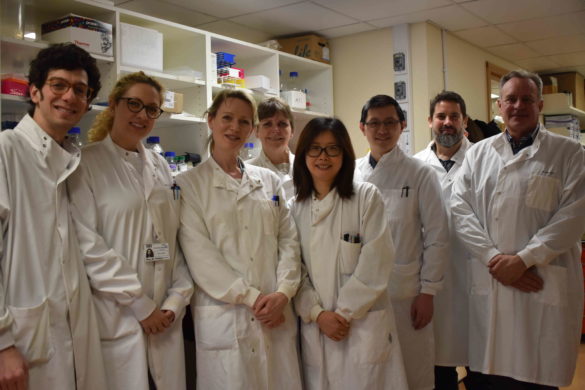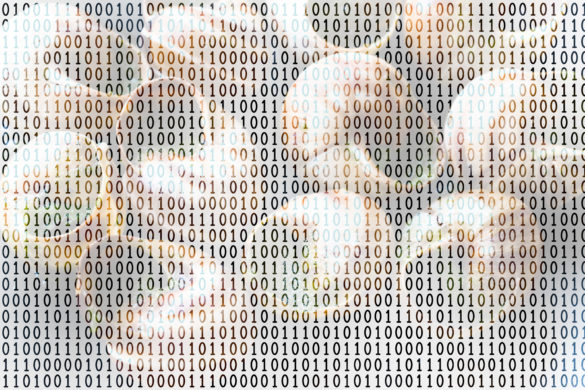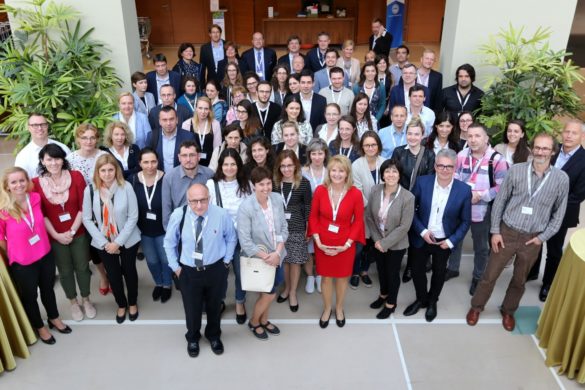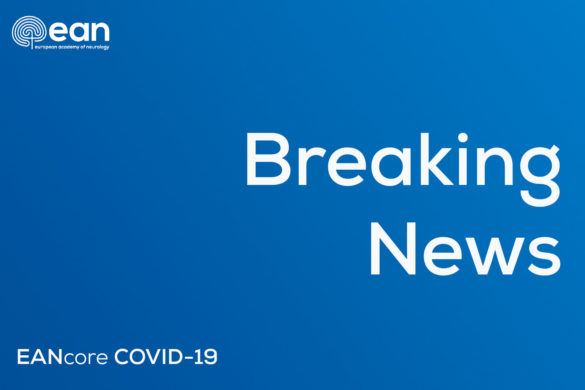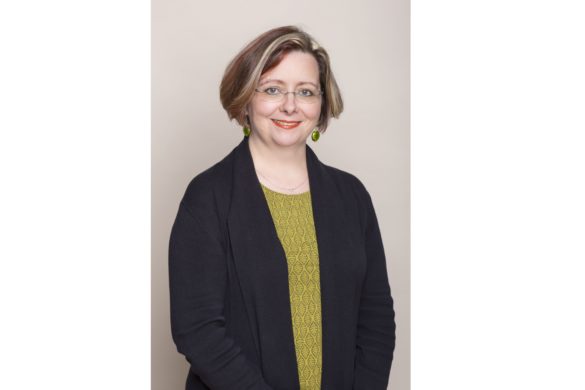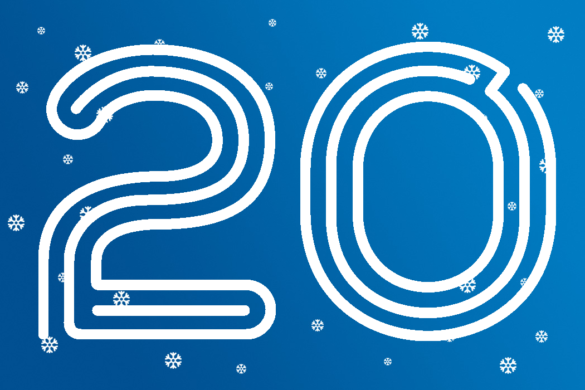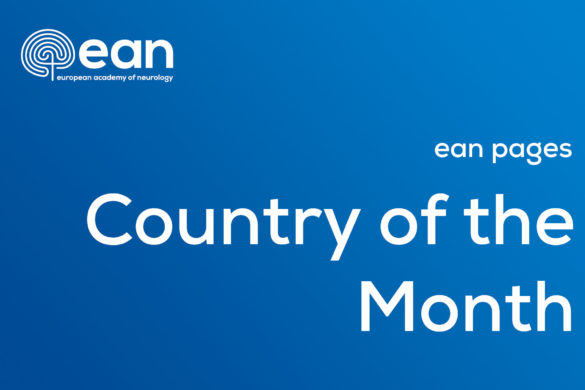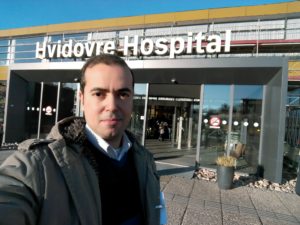 Basem Hamdy Abdelhameed Fouda, MD, Gharbeya, Egypt
Basem Hamdy Abdelhameed Fouda, MD, Gharbeya, Egypt
Term of stay:1.10.-13.11.2018
Hosting department: Department of Neurology 2, Kepler University Klinik, Krankenhausstr. 9, 4020 Linz, Austria
Supervisor: Dr. PhD. Milan Vosco
During my training period, I was planned to undergo clinical training in different sectors in the neurology department. However there were no clear prepared programme for training. I felt confused for some time. By the kind help and concern of Professor Gerhard Ransmayr, the head of department. He solved this issue and introduced me to the collegues in different sectors. So, I was trained in the neuro ICU for certain period. Then I had been attached to senior doctors in the other Neurology sections.
In the Neurology section D2.2, I was exposed to clinical training with cold cases, how to diagnose, what is the differential diagnosis, the investigational methods and the treatment plans. I get a substanial benefit from these management plans particularly those that could be transfered and applied in my department in Egypt. For instance, Geriatric Medicine, patients with dementia. I really got a lot of benefit from the investigational methods applied and the clininal interpretation of these methods. Also, the suitable cognitive , psychiatric and clinincal assessment for those patients.
Stroke unit, which was the main interest for me. In stroke unit I was exposed to the whole programe of patients management and care. Starting from the emergency evaluation, patient selection for thrombolysis therapy and how to deal with confusing issues in this clinical situation.
Stroke constitutes a great burden worldwide and a major cause of disability. So, it was one of the most beneficial experiences I had got and planned to be applied in our stroke unit in Egypt. Stroke registery programs applied in the host department was really so organized, smart and practical. I hope I can apply this programe in Egypt because this will have a great impact on the patients care and follow up and research issues. Stroke rehabilitations programes were so organized and systematized. I have documented these programes and contacted the responsible colleagues to get more details abouts different programs of rehabilitation including lanaguage therapy, occupational therapy and phyiscal medicine.
During my stay, I was included in the scientific activity including conferences, scientific meetings and clinical courses. These scientific activities added a lot of experience and scientific knowledge and paved the way for further scientific plans. It was a very fruitful stay that added to me scientifically, socially. Even the infrastructure and hospital organization. All of these were a great experience.
The difficult situations I met were the accomodation room organized by the department which was not suited well for stay and badly furntured. However, Dr Ransmayr helped me to solve some issues. The second difficult situation was the communication as most of colleagues can not speak English. My little german language skill facilitated this issue to some what.
I really appreciate your support to be included in this scientific clinical fellowship training.
Best regards
Suanna Maria Zuurbier, MD, Wognum, The Netherlands
Term of stay: 24.9.-2.11.2018
Hosting department: Stroke Clinic Centre for the Prevention of Stroke and Dementia at the John Radcliffe Hospital, Oxford, UK
Supervisor:Prof. P. M. Rothwell
First of all, I would like to sincerely thank the European Academy of Neurology for granting me this great opportunity. I took part in the 2018 European Academy of Neurology Clinical Fellowship and stay at the John Radcliffe Hospital in Oxford.
During my stay at the Stroke Clinic Centre for the Prevention of Stroke and Dementia, I had the opportunity to see multiple cases of patients with a transient ischemic attack (TIA) or cerebral infarct. I have seen various cases, like patients with an anterior circulation ischemic stroke but also patients with a different diagnosis like migraine instead of a TIA. In addition, I have attended neurology department scientific meetings and multidisciplinary meetings with the radiology and the stroke team.
The John Radcliffe Hospital has an international reputation for the prevention of Stroke and Dementia. It was great to see how everything was organized in the Stroke Clinic Centre and to observe that they continue their follow up of the OXVASC study, which is an ongoing population-based study on the incidence and outcome of all acute vascular events. They perform a large number of questionnaires and investigatements in these patients. In addition, I performed clinical research in the field of intracerebral haemorrhage, based on the data of the OXVASC study. I have looked at the long-term outcome of patients with a spontaneous (non-traumatic) intracerebral haemorrhage.
I am truly grateful to professor Rothwell for accepting me in the Stroke Clinic Centre for the Prevention of Stroke and Dementia at the John Radcliffe Hospital in Oxford. I would like to thank all stroke neurologist, fellows, residents, students, nurses, and the other personnel for having me during my stay of this European Academy of Neurology Clinical Fellowship.
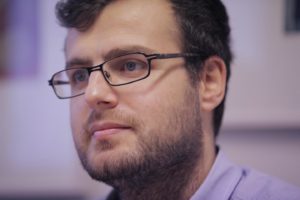 Fisnik Jashari, MD, PhD, Prishtina, Kosovo
Fisnik Jashari, MD, PhD, Prishtina, Kosovo
Term of stay: 5.9.-18.10.2018
Hosting department:Department of Neurology, Skåne University Hospital, Getingevägen 4, 221 85 Lund, Sweden
Supervisor: Prof. Maria Strandberg MD, PhD
I spent six weeks (10 Sept till 19 Oct 2018) in the Department of Neurology in Skane University Hospital, Lund, Sweden. For this I am thankful to the hosting department for accepting me and EAN for providing the fellowship. During this fellowship, I was under the supervision of Prof. Maria Strandberg. The fellowship was mainly focused on Epilepsy, but I have also participated in daily activities in neurophysiology, stroke care and one week in Neuro-observation in Malmo hospital. I have also been attending interesting lectures that were held in the Neurology department during my stay.
Few weeks before starting my fellowship, the supervisor together with the head of the Department sent me the preliminary schedule for every week of my stay. My working days started at 8 am with the morning meeting. I was spending my first two week together with my supervisor in outpatients and epilepsy ward visiting hospitalized patients. During this week, I have seen some very interesting patients, epileptic syndromes that I haven’t seen before, and we did a thorough discussion with Maria for important issues in diagnosis and treatment of patients with epilepsy. I also was able to see the follow up of patients with vagus nerve stimulator.
On Mondays and Thursdays there were Epilepsy surgery meetings. Each week there were 4 new patients discussed in a team of experts in the field of epilepsy including neurologists, electrophysiologists, neuro-radiologists, neurosurgeons, nurses’ technicians and neuropsychologists. It was great for me to listen the discussion at that level. All cases were evaluated in detail in order to find an epileptogenic focus eligible for surgical resection. They started with a detailed patients’ history presentation, seizure semiology, video-EEG and 3 or 7 Tesla brain MRI imaging. When the picture was not clear, they would go ahead and complete it with an Ictal-SPECT, PET, fMRI and stereo EEG examination.
I spent my third and fourth weeks in Neurophysiology Department. In Sweden, neurophysiology is a separate specialization from Neurology, and EEGs are analyzed and reported by neurophysiologists. During those weeks, I was under the supervision of Prof. Eskil Elmer and Prof. Christine Clementson. I followed them on their work and together we have discussed many interesting emergent, routine, sleep and monitoring EEGs. These two weeks were very fruitful for me, Eskil and Christine explained me how to identify several artefacts and normal EEG variants together with different epileptiform and ictal EEG changes. During my stay in neurophysiology department I have also seen a sensory evoked potential examination and also participated in a surgical procedure for intracranial stereo EEG electrode placement.
The remaining fifth and sixth week I spent in Neuro Observation center in Malmö hospital and Stroke Unit in Lund. I was able to see how the diagnostic process of stroke, its acute treatment and further therapy is performed in Sweden. I have seen many important cases and participated in discussions for decision making regarding thrombolysis and/or thrombectomy. Every week there was a Neuroradiology meeting where interesting MRI and CT images were thoroughly discussed between Neurologists and Neuro-radiologists. It was great for me to meet Prof. Christine Cremer in Malmö Hospital, an expert in the field of neurosonolgy. She also was my opponent during my PhD thesis defense in Umeå University on 2015. We spent a full day together performing several extra and transcranial Duplex examinations.
During my fellowship I have also met other neurollgists, electrophyisologists and clinical observers, to mention here, Dr.Petrea Frid, Dr.Istwan Ferencz, Dr.Fredrik Buchwald and Dr.Erik Westhall. We were been shearing experiences about diagnosis and treatment of different neurological conditions discussing differences in residency programs between our countries and several other issues and. I am proud that I did this fellowship at Lund Hospital. I have gained new knowledge and I felt very welcomed during all my stay. It was a lifetime experience. I have met many good people, professionals, who were happy to share their knowledge with me. I would strongly recommend Lund for the other residents or young neurologists willing to extend their knowledge.
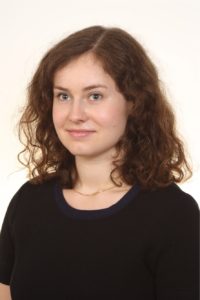 Monika Figura, MD, Warsaw Poland
Monika Figura, MD, Warsaw Poland
Term of stay: 20.10.2018- 01.12.2018
Hosting department: National Parkinson Foundation Centre of Excellence King’s College Hospital, Denmark Hill Campus, London, Great Britain
Supervisor: Professor Kallol Ray Chaudhuri
In the period between 20 of October and 1 of December 2018 thanks to European Academy of Neurology grant I served as a clinical observer in National Parkinson Foundation Centre of Excellence in King’s College Hospital in London. I attended everyday activities of the Centre actively, 5 days per week for 6 weeks. During my stay I was able to observe clinical work and research in one of the most renowned centres for Parkinson’s disease patients in the world. I had a pleasure of shadowing Professor K Ray Chadhuri, who is one on the leading scientists in the field of Parkinson’s Disease in the world as well, as his multidisciplinary team. The main area of research interest of the team is non-motor symptoms of Parkinson’s Disease, and I had many opportunities to expand my knowledge on this subject. Interventions aimed at help with non-motor symptoms were of special interest to me as this area is often neglected in routine clinical management of Parkinson’s patients. During my stay I was able to attend neurology clinics lead by prof. Chaudhuri and his clinical fellow team as well as Parkinson’s Disease Nurse Specialist clinic, which took place on bi-weekly basis. I also attended botulinum toxin clinics for patients with tremor and focal dystonia, where I could observe injections. I had an opportunity to attend an evening group clinic, aimed at providing high quality information about the disease for newly diagnosed patents as well as familiarizing them with therapeutic options available for them at King’s.
One of the great benefits of this fellowship was the opportunity to observe the cooperation of multidisciplinary team in management of Parkinson’s Disease patients. They were offered complex care of Parkinson’s Disease nurse, pharmacologist, occupational therapy service, speech therapy and physiotherapy. Weekly multidisciplinary team meetings served as a field for exchanging information for therapy- related process.
I was also able to observe management of patients with advance stage Parkinson’s Disease. Those were qualified for Duodopa or apomorphine treatment. I was able to attend PEG insertion procedure and post-PEG stoma care and titration process, which will be of great benefit for my future practice. I was also available to learn about palliative care of patients with neurodegenerative disorders.
Clinical fellowship in King’s enabled me to observe some of the high end clinical research conducted here, mainly focused on management of non-motor symptoms of the disease, monitoring of disease progression using questionnaires and scales as well as telemedicine techniques. I also observed process of development of new scales for assessment of Parkinson’s disease non-motor symptoms, such as psychotic symptoms scale.
In addition to extensive Parkinson’s Disease training programme I was also able to participate in some general neurology activities. I was attending general neurology clinic run by neurology consultant. I participated in weekly neuroimaging meetings and clinical lectures on different neurological topics and reports of complicated cases held by Academic Neurosciences Centre of King’s College.
I believe I will be able to introduce many observations I made in King’s into my own management of patients with Parkinson’s Disease. This experience broadened my knowledge on management of non-motor symptoms of Parkinson’s’ Disease and advanced therapies.
The total cost of my stay was of around 3000 EUR, and I spent about 1200 EUR on accommodation and 170 EUR on transportation in London during my stay. My plane ticket cost was 70 EUR. As England is an expensive place to live, higher level of funding could be suitable for future fellows included in the programme. Time of stay is sufficient to have an overall experience of clinical practice in different neurological centre.
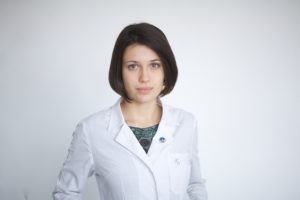 Anna Moroz, MD, PhD, Moscow, Russia
Anna Moroz, MD, PhD, Moscow, Russia
Term of stay: 20.10. – 24.12.2018
Hosting department: Tel Aviv Sourasky Medical center, Ichilov, Wiezmann str, 6, Tel Aviv 64239, Israel
Supervisor: Tanya Gurevich, MD
I was welcomed very warm when I arrived. During the first day I had a small tour around the hospital, met the staff, learned administrative things about the hospital and my future training.
From the 2nd day I starter to work. About 60% of the time I was involved in out-patient clinic’ work. I spent a lot of time being with many doctors specializing in different disease: there were a lot of clinics such as Parkinson’s disease, advanced Parkinsosn’s disease, Huntington’s disease, Tourette syndrome, Creutzfeldt-Jakob disease, deep brain stimulation, botulinotherapy, general movement disorders. I also was following some of the patients during their rehabilitation. I took part in such an activities as speech therapy, gait disorder therapy, dancing therapy, virtual reality, physiotherapy, occupational therapy, psycho- and social therapy. I was pretty much surprised how great is the rehabilitation is organized.
I was also visiting morning rounds at the in-patient clinic; I was involved in a further discussion about difficult clinical cases. I was able to accompany patient to some investigations, especially neuroimaging where learned a lot about different new methodologies that are not so widespread in my country.
Every Tuesday there were lectures on different aspects of neurodegeneration and movement disorders, both clinical and scientific ones. Every Thursday there were meetings where some extraordinary cases were discussed. I was involved in all of these activities.
I made a lecture about the hospital where I use to work and told few things about my PhD project. It appeared to be of a great interest and there were a lot of questions from professors, that made me pleased!
I also spent 2 days being at the huge conference – the annual meeting of the Israel neurologists, and visited the “EAN day” there. I was invited to the Rambam hospital in Haifa to meet colleagues and have a look at the unique procedure in tremor treatment – MRI-navigated focused ultrasound.
During my fellowship I learned really a lot about diagnostics and management of movement disorders; I saw a few disorders that I only read about and never met before. I communicated a lot with the great minds of neurology; visited conferences and lectures, so I was able to learn a lot not only about movement disorders, but either about other fields of neurology.
I am really happy that I was involved in the EAN fellowship program, I’m lucky I had a chance to visit Tel Aviv Sourasky Medical Center, which is a great hospital. I’m absolutely sure that the achieved knowledge will help me in my future practice.
I really appreciate the opportunity, and I’m very grateful to EAN educational committee and Movement Disorder unit of Tel Aviv Sourasky Medical Center (especially Dr. Gurevich and Prof. Giladi) for the great experience!
Financial part:
The accommodation – 1100 euro/month;
Bus ticket for six weeks – 150 euro;
2-day Conference including EAN meeting – 120 euro;
The travel expanses (plane) – 440 euro.
During the working days I was able to have a lunch at the hospital with a discount, so the expenses for food were not so big.
Silvio Piffer, MD
Term of the stay: 4.6. – 24.6. and 19.11. – 7.12.2018
Hosting department (full address): Centre Cérébrovasculaire, Service de Neurologie, Département des neurosciences cliniques, CHUV (Centre hospitalier universitaire vaudois). Batiment hospitalier, Rue du Bugnon 46, CH-1011 Lausanne.
Supervisor (title, full name): Dr Patrik Michel, Associate Professor, UNIL-CHUV Chief physician, Stroke Center.
I am an Italian neurologist interested in acute ischemic stroke management and more in general in cerebrovascular diseases.
Before this experience, I knew about Professor Patrik Michel, the Stroke Center, and the Department of Clinical Neuroscience of CHUV in Lausanne because of Professor Michel’s relevant international scientific publications and his valuable lectures in international meetings. So when I received the EAN confirmation for a clinical fellowship at the Stroke Centre of CHUV, I felt myself really lucky and excited.
Professor Michel has been really kind and available with me both for the application form than for the planning of my stay at the CHUV and in Lausanne giving me all contacts and information for bureaucratic and administrative aspects and about CHUV services for short period accommodation. He also permitted me to split my six-weeks fellowship in two periods: the first in June and the second between November and December 2018.
At my arrival I was very well received, Professor Michel and his team introduced me to all clinical and educational activities of the Stroke Center and more generally of the Neurological Unit. All Neurology service members were fine and could speak fluent English.
My weekly activity schedule was rich. From a clinical point of view, it was composed by daily clinic-radiological morning rounds when all patients admitted during the previous day are discussed, weekly bedside teaching rounds on Tuesday, weekly neuroradiology conferences on Wednesday, weekly outpatient stroke clinic on Tuesday and Friday, monthly multi-specialist meeting about selected cases with particular cerebrovascular diseases or management issues. Each day I also followed the neurologist on call when he had to manage acute stroke patients from the first evaluation in the emergency room, to the angiographic room in case of necessity for urgent endovascular treatment, to the admission to the Stroke Unit. I could consult the Stroke Center protocols for the management of different cerebrovascular diseases, CHUV Stroke registry and I attended to weekly team meetings.
From an educational point of view, I could follow all lessons that regularly take place in the Department for a total of almost 2-4 hours a week (Department seminars on Wednesday, resident lessons on Thursday, case-report seminar on Friday).
In addiction from the beginning of my fellowship, under Professor Michel supervision, I could follow a research project. It is still ongoing and is about atypical cases of transient global amnesia.
Thanks to this clinical fellowship I had the opportunity to know a valuable stroke care system with modern radiological diagnostic instruments (all stroke patients are investigated with urgent brain MRI) and 24 hours available interventional neuro-radiologist, with a modern stroke registry system, with a optimal internal organization adapt to conduct clinical trials, with a objective evidence-base protocols for management of the majority of cerebrovascular diseases, and, more worthy, with a fine, international and open-minded team.
If I can give a little advice it is useful to know at least the elementary French, although most of the hospital operators speak fluent English this applies only to part of the patients.




